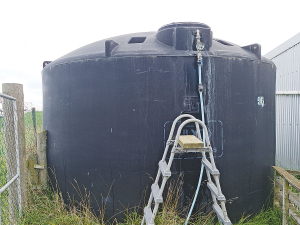Options assessed for Clutha's rural drinking water schemes
An assessment of Clutha District’s rural water supplies is currently underway.
 The Rural Supplies Technical Working Group has made 30 recommendations to the Department of Internal Affairs.
The Rural Supplies Technical Working Group has made 30 recommendations to the Department of Internal Affairs.
The Rural Supplies Technical Working Group (RSTWG) has made 30 recommendations in a recent report to Department of Internal Affairs (DIA), including that the country's 100 or so council-owned rural water supply schemes be transferred to the four new co-governed water entities.
It adds that tens of thousands of privately-owned rural water supply schemes are not included in Three Waters reforms.
RSTWG chair and Clutha District Mayor Bryan Cadogan says rural drinking water schemes are critical to the health and livelihood of rural communities, and each scheme is unique.
“We recognise that rural drinking water schemes often provide water for farming as well as for people to drink.
There are distinct differences between rural and urban water – and it’s not one size fits all.”
Cadogan claims his group has listened carefully to the concerns of rural communities.
“The RSTWG agrees that, in general, council-owned rural drinking water schemes should transfer to the new water service entities,” he says.
“But we also recommend that there should be a pathway for some council-owned rural supplies to revert to ownership by their users. This would apply to schemes that are critical to farming and whose users have the capability and resources to operate them without support from councils or water services entities.”
Meanwhile, in terms of the privately-owned rural drinking water schemes, which are not captured by reform and so do not shift to water service entities, Cadogan says for most it will be several years before they need to register as a supplier with drinking water regulator Taumata Arowai and “demonstrate compliance with it requirements to provide safe drinking water”.
Controls on the movement of fruit and vegetables in the Auckland suburb of Mt Roskill have been lifted.
Fonterra farmer shareholders and unit holders are in line for another payment in April.
Farmers are being encouraged to take a closer look at the refrigerants running inside their on-farm systems, as international and domestic pressure continues to build on high global warming potential (GWP) 400-series refrigerants.
As expected, Fonterra has lifted its 2025-26 forecast farmgate milk price mid-point to $9.50/kgMS.
Bovonic says a return on investment study has found its automated mastitis detection technology, QuadSense, is delivering financial, labour, and animal-health benefits on New Zealand dairy farms worth an estimated $29,547 per season.
Pāmu has welcomed ten new apprentices into its 2026 intake, marking the second year of a scheme designed to equip the next generation of farmers with the skills, knowledge, and experience needed for a thriving career in agriculture.
OPINION: Staying with politics, with less than nine months to go before the general elections, there’s confusion in the Labour…
OPINION: Winston Peters' tirade against the free trade deal stitched with India may not be all political posturing by the…